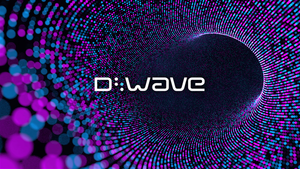NEW YORK CITY, NEW YORK / ACCESS Newswire / November 4, 2025 / Business owners usually know when they've outgrown their basic business accounts. But figuring out what comes next isn't always as straightforward. Banks often use terms like "commercial" and "corporate" in different ways - and in practice, these services can overlap.
The key to finding the right fit is understanding how banks organize their corporate and commercial services and relationships. Once you know how those levels of support typically differ, you'll have an easier time deciding which approach makes sense for your company today - and where you need to go next.
Defining corporate and commercial banking
Chances are, your first business banking account focused on day-to-day transactions, like checking, credit cards, merchant services, and loans. These products are usually streamlined and self-service, with many businesses having similar options regardless of industry.
As businesses grow, however, their financial needs become more specialized. Banks address these concerns through commercial and corporate banking, which focus less on one-time transactions and more on building ongoing, advisory relationships. While these areas may overlap, their main difference comes down to the size of the business, the complexity of its finances, and the level of customization required.
What is commercial banking?
Commercial banking, sometimes called middle market or commercial and industrial (C&I) banking, primarily serves mid-sized companies. These businesses may be regional or privately held, but they often have stable revenue and growing financial needs.
Clients in commercial banking usually work with a relationship manager who understands the company's operations and goals. The relationship manager provides guidance on financial issues, such as:
Working capital loans and lines of credit.
Equipment and real estate financing.
Cash management and treasury services.
Risk management.
While these offerings are more customized than what's available through small business banking, they're still more standardized than those offered in corporate banking.
What is corporate banking?
Corporate banking usually supports larger or more complex organizations, often with multi-state or global operations. Many banks provide corporate banking clients with a team of specialists, including relationship managers, credit strategists, and investment bankers, who deliver highly specialized financial solutions.
These services may include:
Structured loans.
Advanced treasury services and liquidity management.
Capital raising, such as issuing debt or equity.
Mergers and acquisitions advisory.
Foreign exchange solutions.
The difference between corporate and commercial banking isn't always black and white because every bank has its own way of structuring its business divisions. However, a good banking partner makes this transition seamless, so you don't have to start over as your company grows.
Knowing when to transition
Many businesses start with small business banking and, as they expand, move into commercial or corporate relationships. Again, your bank will help you, but you also want to know when it's time to make the change. Here are a few questions to help you decide:
Are you managing cash flow in multiple locations? The systems you use to collect and disburse cash can get more complicated as your business grows.
Are you considering investing in a new location? If your business is ready to grow, you may need larger or more flexible financing options than a standard business loan can provide.
Do you need customized lending solutions? Commercial banking may offer tailored loans, such as equipment financing or seasonal lines of credit, to fit your needs.
Do you have large vendor or client contracts? Bigger contracts often require different payment terms, risk management, or guarantees that small business accounts don't typically cover.
Has your payroll become more complex? Paying a larger team may mean you need advanced cash management.
Are you exploring international suppliers? Corporate and commercial banking offers foreign exchange tools to help you manage payments in other currencies.
Ultimately, the most important consideration is whether small-business banking products still meet your everyday financial needs. If not, schedule an appointment with your banker to discuss the next steps.
Growing with your bank
The right banking relationship changes as your company grows. Whether you're managing today's operations or planning for the next stage, understanding how business, commercial, and corporate banking work can help you choose the level of support that fits your needs.
Sources
https://www.investopedia.com/terms/b/business-banking.asp
https://corporatefinanceinstitute.com/resources/commercial-lending/commercial-bank/
https://lumenalta.com/insights/commercial-banking-vs-wholesale-banking-vs-corporate-banking
Contact Information:
Name: Sonakshi Murze
Email: Sonakshi.murze@iquanti.com
Job Title: Manager
SOURCE: iQuanti
View the original press release on ACCESS Newswire






